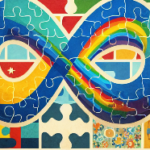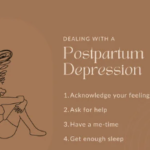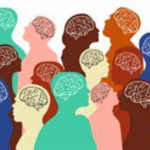In African societies, the intersection of gender and mental health is often under-explored, yet it is one of the most pressing issues affecting women across the continent. Mental health challenges among women in Africa are often compounded by social, cultural, and economic factors that disproportionately affect them, making it critical to understand the unique obstacles they face.
From gender-based violence to reproductive health issues and the heavy societal expectations placed on women, it is clear that these experiences have a significant impact on mental well-being.
In this article, we will explore these challenges by drawing on the expertise of professionals like Adeola Folorunso, an advocate specializing in maternal, child, and mental health. Our goal is to provide valuable insights and practical solutions to help overcome these barriers.
Gender-Based Violence and Mental Health: A Silent Epidemic
Gender-based violence (GBV) is a pervasive issue in many African societies. Women face various forms of violence, including intimate partner violence, sexual abuse, and domestic violence, which severely impact their mental health.
According to the World Health Organization (WHO), one in three women globally experiences physical or sexual violence during their lifetime, with sub-Saharan Africa being a region of particular concern. The psychological toll of GBV includes depression, anxiety, post-traumatic stress disorder (PTSD), and suicidal ideation.
For many women in Africa, these mental health issues often go unnoticed or untreated due to societal stigma surrounding both mental health and the notion of female victimhood.
Women are frequently silenced by cultural taboos that discourage them from speaking out about abuse, leading to emotional and psychological isolation.
This is where the work of advocates like Adeola Folorunso comes into play. Through her initiative, Matermental, Adeola has helped raise awareness about maternal mental health and the impact of gender-based violence on women’s well-being.
She is committed to ensuring that vulnerable women receive the necessary support and services to recover from trauma, whether it’s through access to psychological care or participation in programs that address domestic violence.
Adeola’s efforts underscore the importance of providing a holistic approach to healthcare, one that does not just focus on the physical but also addresses the mental and emotional scars left by violence.
Reproductive Health and Its Psychological Toll
Reproductive health challenges are another significant factor contributing to the mental health issues faced by women in African societies.
According to the African Union, “nearly 30% of women aged 15 years and above have experienced gender-based violence with intimate partner violence ranging from 13% – 97%. During displacement and times of crisis, the risk of gender-based violence significantly increases for women and girls.”
Many women experience complications related to pregnancy, childbirth, and postpartum depression, but these conditions are often underdiagnosed or inadequately treated.
In some African cultures, there is still a stigma attached to mental health issues that arise during and after pregnancy, and this prevents many women from seeking the support they need.
Adeola Dorcas Folorunso has been at the forefront of addressing these issues. In 2023, she organized a “Beyond Baby Blues” summit that brought together experts in mental health, midwifery, and psychology to address postpartum depression.
The summit, which was attended by over 250 participants, offered free mental health screenings and resources for women in need, especially those from underserved areas.
Through initiatives like this, Adeola has helped to break the silence surrounding postpartum depression and advocated for better support systems for women struggling with mental health issues during and after pregnancy.
This summit also underscored the need for gender-sensitive mental health policies that take into account the specific needs of women during their reproductive years.
Societal Expectations and Mental Health
In addition to the physical and emotional toll of reproductive health issues, societal expectations also weigh heavily on women in many African societies. Women are often expected to fulfill multiple roles – as caregivers, mothers, wives, and community pillars.
These expectations can be overwhelming, leading to burnout, stress, and mental health challenges such as anxiety and depression.
In many African cultures, women are expected to prioritize the needs of their families over their own well-being. The pressure to conform to traditional gender roles can lead to a sense of self-neglect, with women constantly juggling work, home life, and caregiving responsibilities.
The lack of time for self-care, coupled with the burden of societal expectations, can cause significant strain on a woman’s mental health.
It’s important also to point out the stigma surrounding mental health in many African countries which makes it difficult for women to express their struggles or seek help.
Mental health issues are often viewed as a sign of weakness, and women who attempt to address their mental health challenges may be stigmatized as being “unfit” or “incapable.” This social stigma can prevent women from accessing care or even acknowledging the impact of mental health issues on their lives.
Adeola’s own experiences, balancing her career in healthcare with the societal expectations placed on her as a woman, provide valuable insight into how to navigate these challenges.
As a professional nurse, healthcare administrator, and advocate, she understands the pressures that women face. Her story highlights the importance of not only providing healthcare services but also offering a space for women to express their emotional and mental health struggles without fear of judgment.
This is why Adeola’s work focuses not only on healthcare delivery but also on advocacy and empowerment.
Autism and Gendered Impact on Women and Families
A key area where gender and mental health intersect is in the care of children with autism spectrum disorder (ASD). In many African countries, children with special needs, including ASD, face significant social and healthcare barriers.
This places a unique burden on mothers, who are often the primary caregivers in African families. The mental health of these mothers is frequently overlooked, even though the strain of raising a child with autism can be overwhelming.
For mothers, caring for a child with ASD can lead to increased stress, anxiety, and depression. The lack of specialized services, combined with the stigma surrounding disabilities, can leave these mothers feeling isolated and unsupported.
In addition, the high sensory sensitivity experienced by many children with autism can complicate caregiving, as mothers must navigate challenges like managing their child’s dietary needs, behavioral issues, and social integration.
Adeola Dorcas Folorunso has taken proactive steps to address these challenges. In September 2024, she organized a dental outreach for children with ASD in Iwo Osun State, Nigeria.
The outreach provided over 150 children with free dental care, including cleaning, scaling, and polishing. This initiative was particularly important because children with autism often have difficulty maintaining dental hygiene due to their heightened sensory sensitivity.
By providing this essential care, Adeola not only helped improve the children’s health but also offered a moment of respite and support for their mothers, who were often left to manage these challenges alone.
Gender-Sensitive Policies and Support Systems
While individuals like Adeola have done commendable work in addressing the mental health needs of women in Africa, there is still a need for systemic change. Current healthcare policies in many African countries often fail to recognize the unique mental health needs of women.
You can learn more by checking out a United Nation’s publication, “Gender-sensitive policy recommendations to support women cross-border traders in Malawi, the United Republic of Tanzania and Zambia”
Gender-sensitive policies must be developed to ensure that women have access to comprehensive mental health care that takes into account their reproductive, social, and cultural experiences.
The introduction of gender-sensitive policies should include the integration of mental health screenings into maternal healthcare services, the establishment of mental health support networks for women, and the creation of community-based programs that offer culturally appropriate care.
Additionally, training healthcare providers to recognize the signs of mental health issues, particularly postpartum depression and the psychological impacts of gender-based violence, is crucial for improving mental health outcomes for African women.
Conclusion: Breaking the Silence
As Folorunso’s work continues to highlight, it is crucial for African societies to engage in conversations about the mental health challenges that women face.
From gender-based violence and reproductive health to societal pressures and autism, the mental health of women must be prioritized in both policy and practice. The stigma surrounding mental health must be addressed so that women can access the care they need without fear of judgment.
Adeola’s advocacy and her work through Matermental demonstrate the power of community-based outreach and education. By raising awareness, organizing events, and fostering collaboration among experts and communities, we can begin to shift the narrative around women’s mental health in Africa.
It is time for African nations to commit to gender-sensitive policies and build support systems that empower women to prioritize their mental health and well-being.
If you or someone you know is struggling with mental health issues, whether it’s related to gender-based violence, reproductive health, societal expectations, or caring for a child with autism, it is essential to seek help.
Remember, you are not alone. Advocacy groups like Matermental and others are working tirelessly to provide resources, education, and support for women across the continent. Together, we can create a healthier, more equitable future for African women.
Reference .
- Maloka,V.L, Gahongayire. B and Chiwara. l. (2021). Gender Equality, Women’s Empowernment(GEWE) and HIV in Africa : The Impact of Intersecting Issues and Key Continental Priorities. Available from : Gender Equality, Women’s Empowerment (GEWE) and HIV in Africa: The impact of intersecting issues and key continental priorities .
- UN Trade and Development.(2019). Gender-sensitive policy recommendations to support women cross-border traders in Malawi, the United Republic of Tanzania and Zambia
- World Health Organization. (2024). Violence Against Women. Available from : Violence against women – World Health Organization (WHO)




















4 Responses
“The mental health of these mothers is frequently overlooked, even though the strain of raising a child with autism can be overwhelming.” Especially when the mother is determined to carry on with life, and is successful in her career or business she is taken for granted! Women should learn to take responsibility for their mental health by asking for support, time out, relaxation and therapy as and when they can !
Excellent perspective! This aligns well with what Spunky Game is achieving.
Masterful insights! The experimental nature of Sprunki Incredibox is revolutionary. Sprunki OC brilliantly combines challenge with accessibility. The possibilities that Sprunki OC enables through its creative tools are remarkable.
Enhanced solutions using AI Tools. These AI Tools streamline operations.